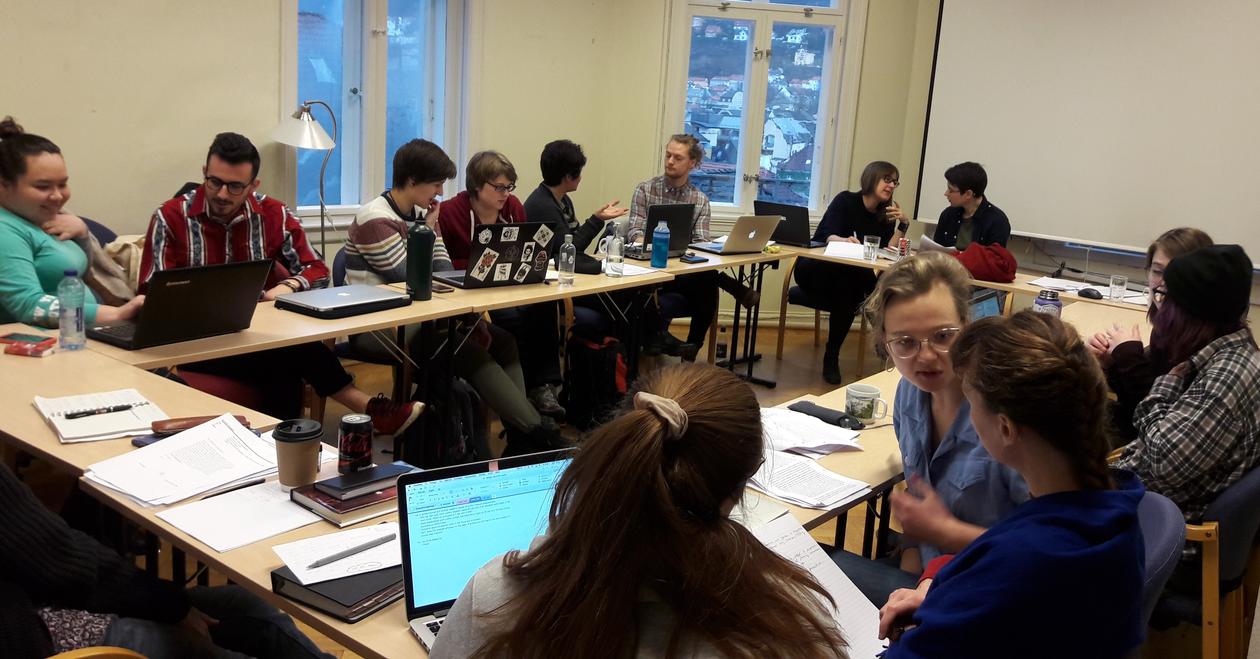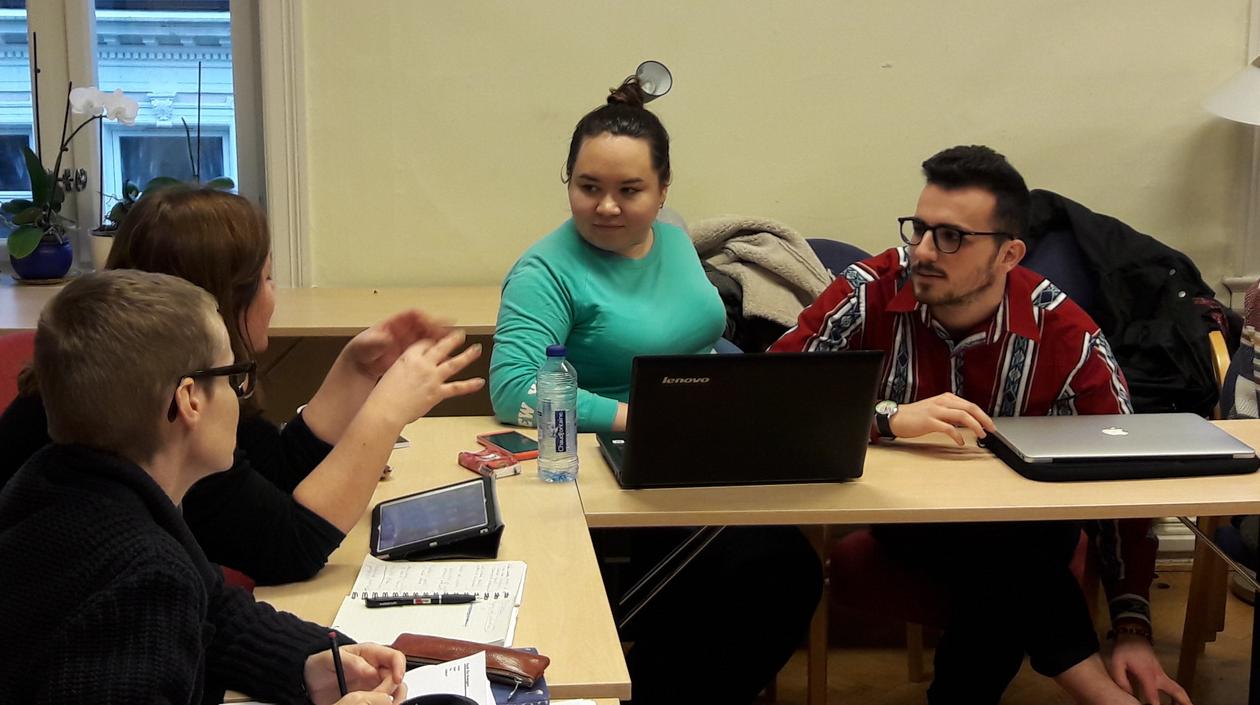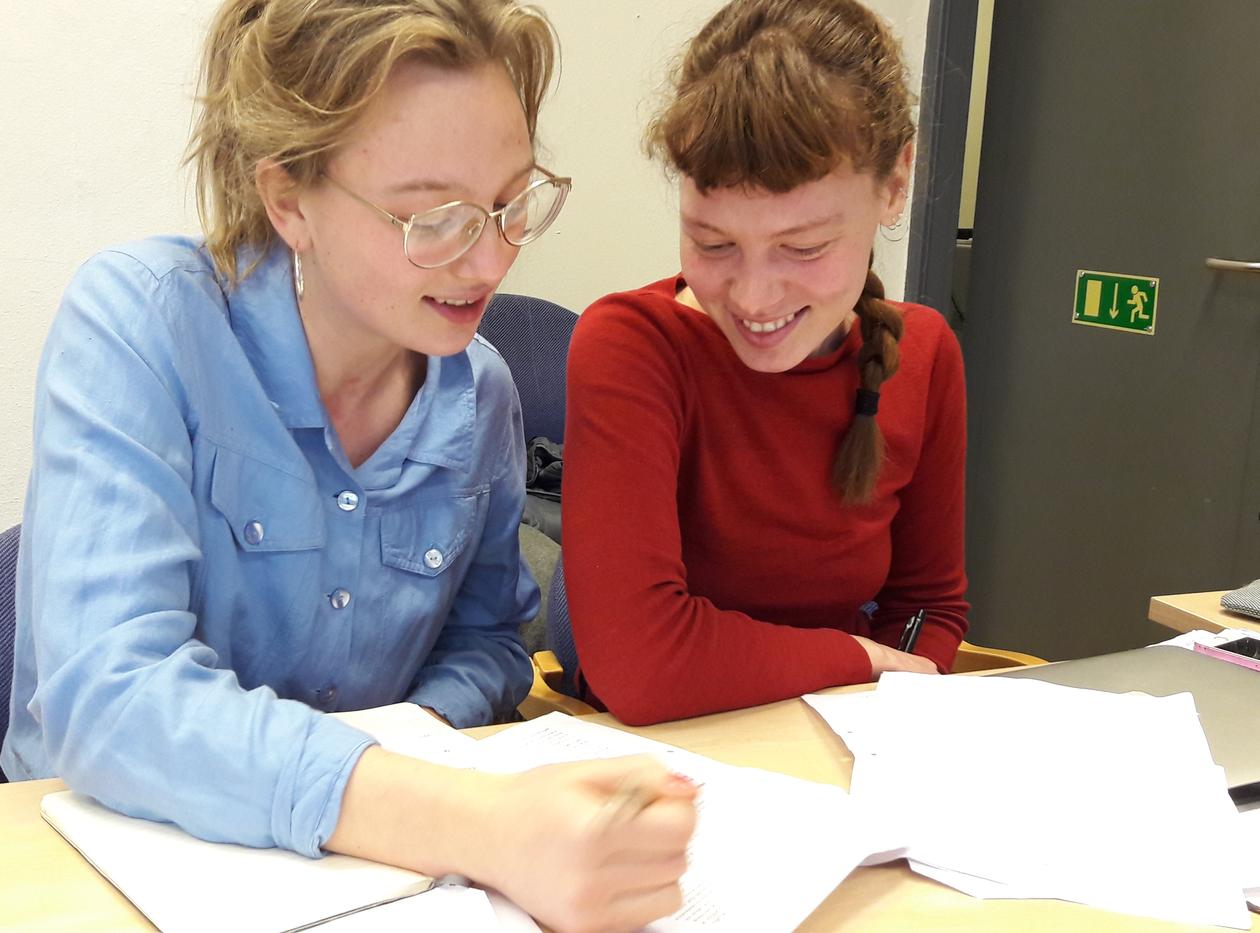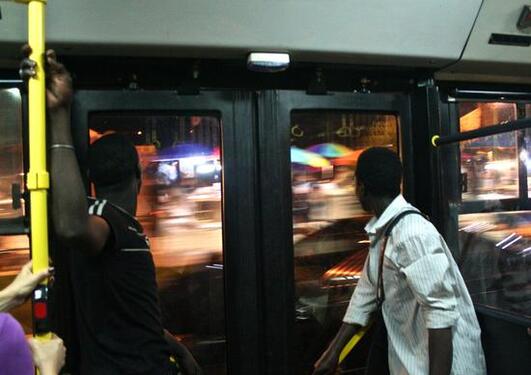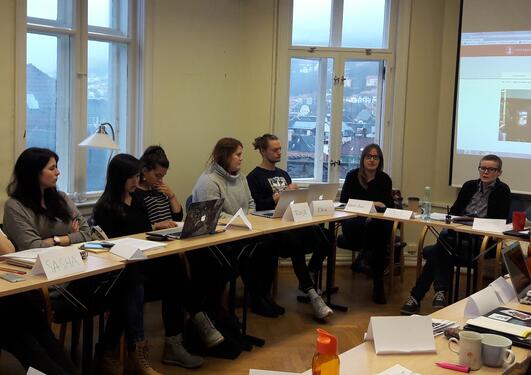Research and critical thinking inspire students
"For this course you want to read the material and be prepared", exchange student Anna Tydén says.

Main content
The curriculum for the new course «Gender, Migration and Time» is directly linked with current research on migration in Europe, an angle that the students highly appreciate.
"A good aspect of the course is that is we shape it together. There is no right or wrong answer, but rather a focus on critical thinking and discussion", Anna Tydén and Tora Sanden Døskeland explain. The two students with a background in literature highly appreciate the focus on current research and that they get to be part of the research process.
The course "Gender, Migration and Time" is closely linked with the newly launched project WAIT - waiting for an uncertain future: temporalities of irregular migration at Centre for Women’s and Gender research (SKOK) headed by Christine M. Jacobsen, director of SKOK.
"This is definitely the most fun course to teach", Jacobsen says. Jacobsen and course leader Randi Elin Gressgård highlight that it has been an important strategy to structure the course in this particular way in order to minimize the distance between researcher and student. During the lectures, researchers from WAIT, PhD candidates at SKOK and students sit mixed together discussing all topics.
Interdisciplinary focus
Walking in to the lecture, the room is buzzing with discussions. The vibe is informal and humorous, and articles are explored both collectively and in groups. All students and researchers have different backgrounds, such as anthropology, sociology, geography and international relations, which gives everyone an opportunity to learn from each other’s experiences and perspectives.
"It is great that everyone has different backgrounds, and that there are so many competent and resourceful researchers involved and part of teaching the course", Tora and Anna says. They themselves have a background in literature from the University of Copenhagen.
They agree that more courses at university level should be structured in a similar way as this course. Often students read because they have to, but in this course you want to read and come prepared to class the two students says.
Why it works
Both Tora and Anna find it difficult to explain what it is exactly that makes the course so good, and explains instead that it is all the different parts, the structure, the interactivity and open platform, that together creates a whole that works so well.
"From the very beginning the researchers created openness in the lectures enabling fruitful discussions. If this had not been established from the beginning, then the discussions would not be as dynamic as they are now", they explain.
Anna and Tora also highlight that the focus on migration is an important factor for why the course is so interesting.
Creative expressions
Now, the students will start constructing their own project over a freely chosen research topic. In this part of the course, the students will freely choose a format to work with. It can be anything between film, pod cast, blog post, magazine and photography. Tora and Anna have already started planning their project, and will during the next few weeks dig deep into the material and find the right angle for their topic.
